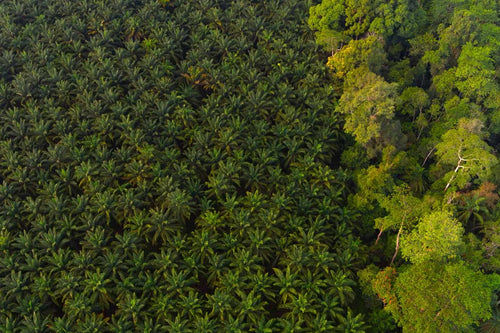Astonishing Facts About Deforestation: Branch Out And Take Action With Us Today

Get insider insights on deforestation, its environmental impact, and what you can do to help. Discover more and join us in implementing solutions to combat it.
Estimated Read Time: 4 minutes
What Is Deforestation & Why Is It a Big Deal
Since the beginning of humankind, we have needed forests to survive. Humans use(d) forests for shelter, fuel, medicine, food, and more.
But our forests are facing a crisis: Deforestation.
In just the past 100 years, we have lost the same amount of forests as in the previous 9,000 years.
Deforestation occurs when forests and rainforests are completely cleared to be converted for another purpose with the majority of deforestation occurring in tropical rainforests.
When forests are cleared, not only do we lose the plants, animals, and people who rely on the forest, we lose one of Earth’s natural resources for absorbing carbon dioxide.
Forests are natural carbon sinks meaning they hold more carbon dioxide than they produce. When forests are cleared, the effects are twofold. The carbon stored in the forests is released, and that area is now no longer able to absorb future carbon dioxide.
5 Main Causes Contributing to Deforestation:

Agriculture, Mining, Energy
Includes cattle farms, palm-oil plantations, soy, and more

Small-scale Agriculture
Smaller scale farms used for local farming

Logging
To produce wood products such as wood pulp, timber, and paper

Urbanization
When forest land is cleared to make room for a city

Wildfires
Both natural, planned, and illegal clearning
10 Solutions to Deforestation
It’s not always easy to tell if your tissues or your sugar came from a forest in Brazil but there are a variety of solutions that can help curb and reduce the rapidly increasing deforestation.
Policies
1. Support representatives who are committed to preventing deforestation.
2. Support legislation that invests in local forest agriculture to help farmers achieve better yields (seed varieties, fertilization products, better farming practices).


Restoration
3. Donate your time and money to organizations committed to the conservation and restoration of forests around the world.
4. Invest your time and money with organizations that are putting forest management back in the hands of indigenous communities.
Go Local
5. Consider the miles and emissions from your food and products travel to get to you. Try to find closer alternatives when possible.
6. Prioritize locally grown (and seasonal) vegetables and meat to reduce your food miles and local farms.


Certifications
7. Look for certified products for responsible forest management, like the Forest Stewardship Council (FSC).
Habits
8. Choose tree-free and palm-oil-free products
9. Prioritize products made from recycled materials that can continue to be recycled
10. Make sustainable, earth-friendly swaps whenever you can with ZWS!

Learn More About Deforestation
Books
Check out your local bookstore for the following:
- Mistaking Plantations for Indonesia's Tropical (Rain) Forest, by Wahana Lingkungan Hidup Indonesia
- The Falling Sky: Words of a Yanomami Shaman, by Davi Kopenawa
- In the Shadow of the Palms: More-Than-Human Becomings in West Papua, by Sophie Chao
Movies
Podcasts
- The Intelligence from the Economist: Felling through the cracks: rainforest in crisis (Listen on Spotify)
- The Future of Life Institute, Episode 20: Not Cool, Deborah Lawrence On Deforestation (Listen on Spotify)
- Mongabay Explores: Sumatra, Part 3: Deforestation Demystified (Listen on Spotify)
What You Can Do to Help Deforestation Right Now

Reduce your paper usage at home and in the office.

Replace your forest-based products with sustainable alternatives.

Plant a tree whenever you can (or support organizations that plant trees).

Prioritize recycled paper products that can continuously be recycled.

Avoid products that contain palm oil as palm oil plantations are one of the largest contributors to deforestation.

Look for certifications such as FSC when buying forest-based products.

Put your money where your values are by shopping with companies that are working towards reducing deforestation.
Alternative Products
Shop these forest-friendly sustainable alternatives from ZWS!

Reusable Paper Towels
From $24.99

PlantPaper Bamboo Toilet Paper
$42.00

Zero Waste Sponge Cloths
From $6.50

Shampoo & Conditioner Bars
Palm oil free
$24.99

Zero Waste Dish Block
Palm oil free
$11.99

Bamboo Toothbrush
From $3.99

Bamboo Hair Brush
$19.99

Renewable Cork Yoga Block
$22.00
Take Action Against Deforestation This Week!
April 3rd-9th 2023, your purchase can help protect the forest! For every order placed, we’re donating $2 to The Rainforest Trust!
SHOP AT ZWS

